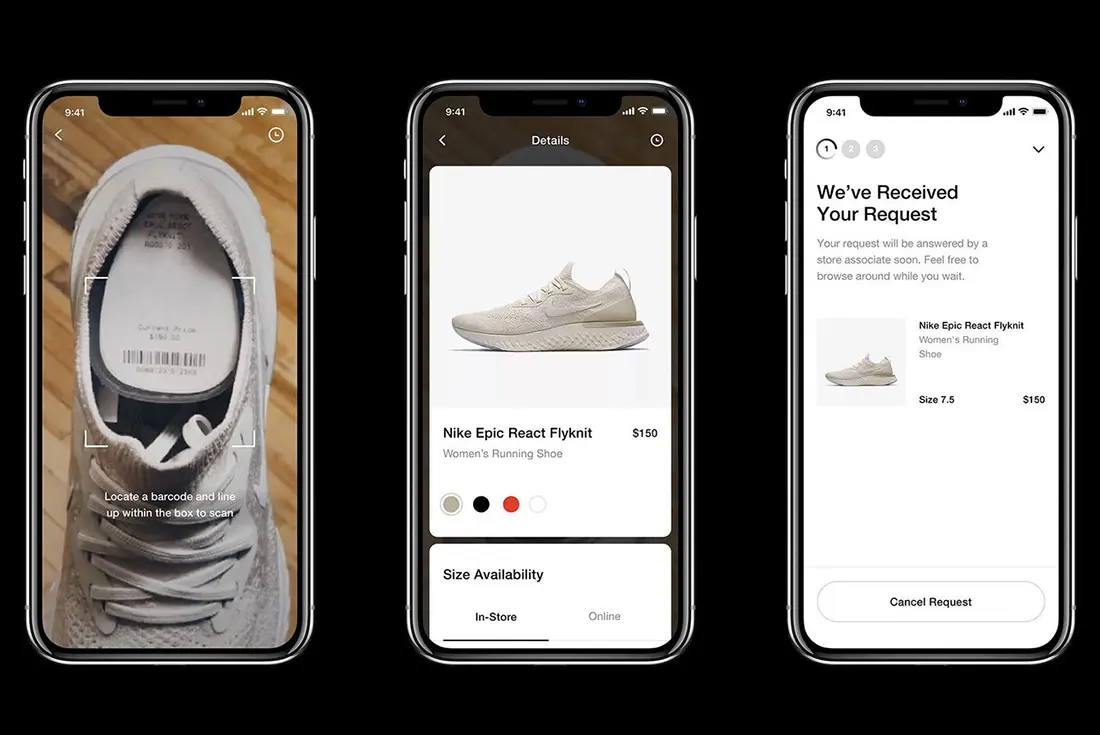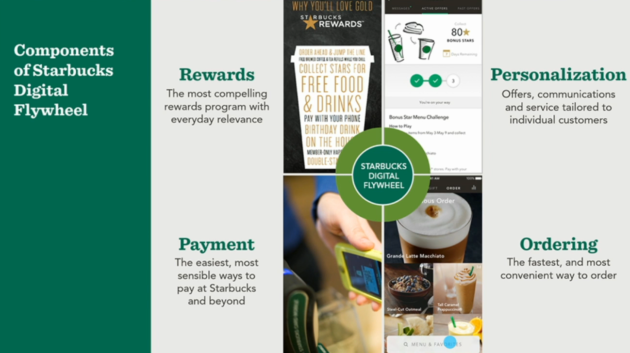AI Marketing: The Complete Guide to Transforming Your Marketing Strategy in 2024
Written By
Published On
Read Time

It's not surprising that Artificial Intelligence (AI) is making a big impact in nearly every field where it's used. Recent figures suggest that AI can improve business productivity by as much as 40%.
With the quick spread of new technology, many industry leaders are moving towards more advanced and efficient methods. AI has established itself as a key tool in this shift.
It's clear that businesses using AI have a better chance of staying ahead of the competition in various ways. More and more companies are now investing in AI for marketing - a significant move that's changing how we approach marketing.
To keep up with AI and learn how it can enhance your business, consider taking an online course in Artificial Intelligence. This course will teach you practical, real-world AI Marketing Strategies through hands-on examples, assignments, and projects.
This article will guide you through everything you need to know about AI, showing how it can greatly improve the work of anyone involved in marketing.
Defining AI (Artificial Intelligence) in Marketing
AI marketing employs smart technology to help your business with its marketing efforts, making your campaigns more effective.
Having AI as a tool means you can spend money more wisely, tailor your content specifically for your audience, and save a lot of time, speeding up the process of seeing results.
Here are a few examples of AI marketing tools:
Apps that can recognize images.
Voice-activated assistants such as Google Assistant, Amazon Alexa, Microsoft's Cortana, and Apple's Siri.
Systems like Netflix's, which suggest things to users based on what they like.
AI Marketing Use Cases and Applications
Businesses in various sectors are using AI to create and execute more effective digital marketing plans.
Let's dive into this with some real-life examples:
Chatbots and AI Conversations
Chatbots and AI tools help companies talk to their customers in a more interactive and personal way.
These tools understand and reply to customer questions using technology that processes human language and learns from it. This allows them to offer help and create customized experiences.
They can be used in different ways, like through chatbots, digital helpers, and messaging apps.
Many companies use these AI chatbots to interact with customers and quickly answer their questions.
How do they do it?
These chatbots remember past conversations with customers to come up with personalized answers. They lessen the workload and give customer service staff more time for complex issues.
Example of Chatbots in Real Estate:
The real estate sector is increasingly using AI chatbots.
These chatbots chat with customers, answer their questions, and gather info about what they're looking for.
For example, a property marketplace used iovox Insights and increased an agency's revenue by $4.9 million.
iovox's Approach:
They tracked all calls from potential buyers.
Used AI to find missed chances.
Sent automatic emails with details about these opportunities.
Successfully grabbed these missed opportunities.
Even more, iovox Insights made these conversations as easy to search as emails and texts.

Predictive Marketing Analytics
This method gathers data from your business and uses different AI techniques and data sets to guess how customers will act in the future.
By looking at past data and trends, it can predict future customer actions and buying choices.
How is this helpful?
These forecasts about customer behavior and market trends help companies make informed decisions, improve their marketing plans, and spot new chances.
Example with Stitch Fix:
Stitch Fix, a fashion company, uses a prediction-based sales model.
When customers sign up with Stitch Fix, they fill out a style survey. Then, AI suggests clothes based on their tastes and interests.

Detailed Personalization
AI marketing tools let you understand each customer's likes, buying history, location, and past interactions with your brand.
This helps your marketing team get to know each customer better and create a unique experience for each one.
Example of Personalization with Nordstrom:
Nordstrom uses AI to personalize shopping. They remember the clothing sizes of returning customers in their online shopping cart.
This seems like a small detail, but it makes checkout smoother and helps customers finish their purchases.
Predictive Lead Scoring
This method uses past user data and predictive models to find sales leads that are more likely to buy.
How does it work?
Machine learning looks through data and trends to create a model that predicts customer behavior.
The model tells salespeople when a customer is close to buying and which leads are most promising.
Example of Hubspot's Use of Predictive Scoring:
Hubspot uses machine learning for lead scoring, analyzing a lot of data to find the best leads.
This automated process keeps improving, saving time and effort.

Dynamic Pricing
Dynamic pricing lets companies change their prices based on demand.
How?
AI analyzes lots of past and competitive data to recommend the best prices in real-time.
This is especially effective in retail and e-commerce, helping brands adjust prices based on demand, boost sales, and stay ahead of competitors.
Example with Marriott:
Marriott uses dynamic pricing to fill hotel rooms and change rates based on demand.
For instance, if more Americans want to stay in New York during Christmas, Marriott's systems automatically adjust prices to maximize profits.
Read more: Top 24 AI in Marketing Examples That Boosted Business Growth
Exploring AI Marketing Solutions
Machine Learning (ML) in Marketing: Machine learning allows AI technologies to analyze data, helping marketers improve their campaigns. ML involves collecting new data, analyzing it, comparing it with past data, and assisting marketers in making better decisions based on previous experiences.
Big Data in Digital Marketing: The rise of digital media has led to an influx of big data, which are large and complex data sets beyond the scope of standard data processing software. Big data provides a wealth of information for marketers, who can dive into this data to gain insights for their campaigns. AI refines these big data sets to extract valuable information, aiding marketers in planning campaigns and understanding their customers more effectively.
Specialized AI Tools and Platforms for Data Management: Managing large volumes of data is crucial, and AI plays a key role in this process. Various AI platforms and tools help marketers manage data and understand customer behavior. These tools aid in designing future marketing campaigns. An example is the "Bayesian Learning and Forgetting" framework, which assists marketers in understanding customer responses to campaigns and making informed decisions for future strategies.
How Marketers Use AI?
AI in Sales Forecasting: AI helps businesses understand customer purchasing patterns and preferences, enabling them to predict what products customers will buy and in what quantity. This improves inventory management and sales strategies.
AI-Powered Customer Insights: AI is primarily used for gathering valuable customer data, which helps businesses understand their customers better and make more customer-centric decisions.
Personalized Customer Experiences with AI: AI allows businesses to offer personalized content and support to each customer, enhancing the overall customer experience and increasing sales, engagement, and loyalty.
Content Generation Aided by AI: AI tools support content creators by automating routine tasks such as email composition and social media content curation, enhancing the efficiency of content teams.
AI in PPC Advertising: How to Best Use AI for Small Business Marketing
Building Your AI Marketing Strategy
Setting Clear Goals: For successful AI-driven marketing campaigns, it's essential to have a solid plan and specific, actionable goals. Start by identifying areas in your campaigns or operations that need improvement, and set clear, measurable targets (SMART Goals) to enhance user experience.
Data Privacy Standards: Building trust with your customers is crucial. Establish and enforce data privacy standards that reflect your business's values and the trust your customers place in you. These standards should be integrated into your AI platforms.
Gathering Useful Data: Once privacy standards are in place, collect data that will feed into your AI tools. This data is vital for AI to analyze consumer preferences and market trends. Collaborate with a data scientist to filter and analyze relevant data, and share this process with teams like IT, sales, and operations for better coordination. Use digital tools like PowerPoint or Google Slides, and consider using free AI templates available online for effective presentations.
Hiring Data Science and AI Experts: If managing large data sets is challenging, consider hiring specialists in AI and data science. They can enhance the performance of your AI tools and boost the productivity of your marketing efforts.
Maintaining Data Quality: Ensure your input data is as error-free as possible. The effectiveness of your AI tools and marketing campaigns relies heavily on the quality of the data you use. Proper data management is key to maintaining and cleansing raw data.
Creating and Implementing AI Strategies: Integrate your existing marketing strategies with AI tools. These tools simplify processes like data analysis and help avoid errors in future campaigns. This integration not only brings innovative marketing strategies to the table but also sets a standard for future campaigns.
Real-World Examples of AI in Action
Nike's Personalized Online Experience: Nike uses AI to create unique online experiences for customers. Their website suggests products tailored to individual customers and allows product searches using conversational language and images, enhancing the customer journey.

Amazon's Personalized Shopping Recommendations: Amazon leads in eCommerce with its personalized product recommendations. These suggestions are based on customers' past purchases or similar items at different price points, making the shopping experience more personalized and helping customers make easier purchase decisions. Amazon also uses dynamic pricing strategies to adjust prices according to market demand, staying competitive.

Alibaba's FashionAI Store: Alibaba has opened a FashionAI store in Hong Kong, using AI to enhance the fashion retail experience. The store features smart locks to track customer preferences, smart mirrors for product information and recommendations, and a new fitting experience with staff suggestions and a Virtual Wardrobe app. This approach simplifies shopping and increases customer interest.

BMW's Intelligent Personal Assistant: BMW’s AI-enhanced sports cars come with an intelligent personal assistant. This feature allows drivers to control various vehicle functions through voice commands, like climate control and media settings. It can anticipate travel routes, integrate with apps, and act like a voice-activated manual.

Starbucks' AI-Driven Reward Program and Mobile App: Starbucks uses AI in its Rewards Program and Mobile App to collect customer data and build relationships. The company offers personalized benefits like free coffee on birthdays. The AI tool tracks purchase history to suggest products that match customer preferences, considering factors like purchase date, order time, and location.

Predictions and Trends in AI Marketing
Predictive Analytics for Accurate Forecasting: AI’s predictive analytics allow businesses to forecast customer behavior and preferences more accurately, enhancing decision-making in marketing campaigns.
Hyper-Segmentation of Audience: AI enables marketers to create highly specific customer segments by analyzing vast data sets, leading to more effective and personalized marketing campaigns.
Dynamic Customer Persona Creation: AI transforms customer persona development into a dynamic, real-time process, offering in-depth insights for tailored marketing strategies.
Personalized Ad Delivery with AI: AI’s real-time insights into customer behavior allow for the delivery of highly personalized ads, improving engagement and conversions.
AI-Driven Content Recommendations: AI predicts and recommends content that users are likely to engage with, enhancing customer interaction and retention on platforms like Netflix and YouTube.
Optimizing Timing with Micro-Moments: AI predicts peak engagement times, enabling marketers to time their campaigns for maximum impact.
Efficient Lead Qualification with AI: AI streamlines lead qualification and scoring, targeting the right audience effectively to increase conversion rates.
Dynamic Optimization in Email Marketing: AI improves email marketing by optimizing timing and personalization, leading to higher engagement and conversion rates.
Advanced Chatbots for AI customer service: AI-powered chatbots provide automated, personalized customer support, handling inquiries efficiently and learning from past interactions.
Enhanced Shopping Experience with Visual Search: AI-powered visual search allows customers to find products using images, improving the online shopping experience, especially in sectors like fashion and home decor.
Dynamic Pricing with AI: AI’s dynamic pricing adapts prices based on market conditions, optimizing profits and inventory management.
Voice Search Integration in Marketing: AI-powered voice assistants are increasingly used in marketing strategies, adding value for consumers and promoting brand loyalty.
AI Image Generation for Personalized Visuals: AI image generation creates tailored visuals for different audience segments, enhancing user engagement and conversion rates.
Learn more: Speedybrand.io. With tailored AI Content Creation and SEO optimization, you're equipped to drive more traffic and secure better search engine rankings, saving time and increasing your return on investment. Take advantage of the 3-day free trial, no credit card required, and discover the difference Speedybrand.io can make.
FAQs
What is the artificial marketing?
Artificial marketing, also known as AI marketing, leverages the power of artificial intelligence (AI) to enhance and automate various marketing tasks. Think of it as having a super-powered helper who analyzes data, optimizes campaigns, and even crafts content, all fueled by the magic of AI.
How is AI used for marketing?
AI can be used in marketing for Personalization, Marketing Automation, Data Analysis, Content creation, and Targeted advertising.
What is the best AI for marketing?
There's no single "best" AI for marketing, as the most effective tool depends on your specific needs and budget. However, some popular AI marketing platforms include:
Google Marketing Platform
HubSpot
Adobe Marketing Cloud
Salesforce Marketing Cloud
Oracle Marketing Cloud
How to use ChatGPT for marketing?
ChatGPT can be used in marketing for brainstorming and generating content ideas, personalizing customer interactions, and analyzing customer feedback.